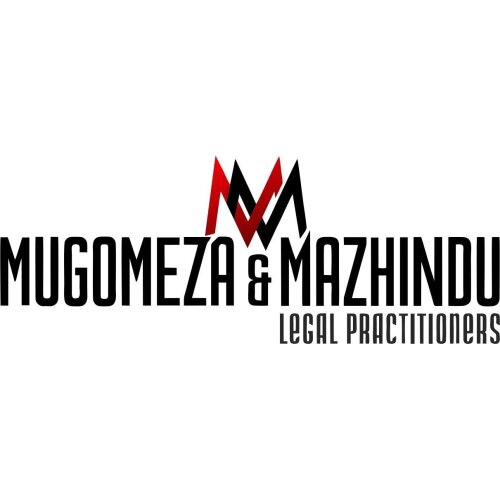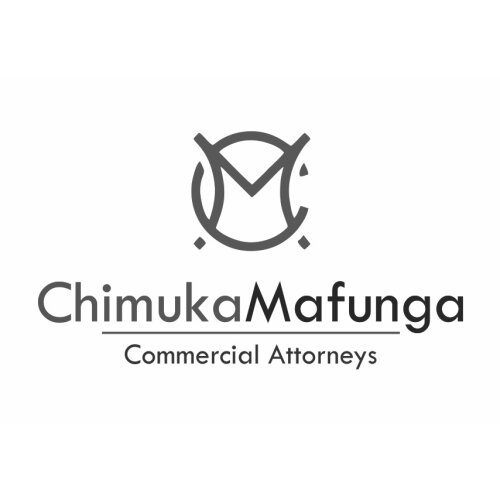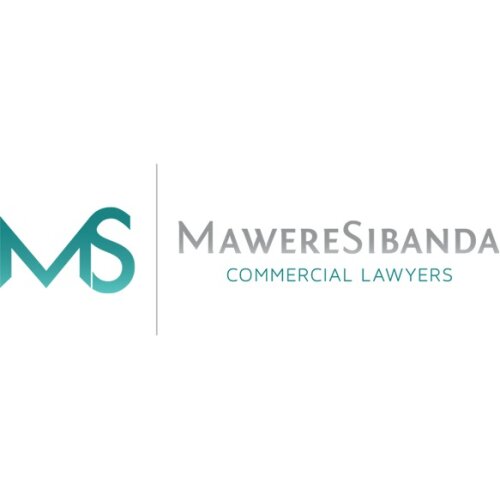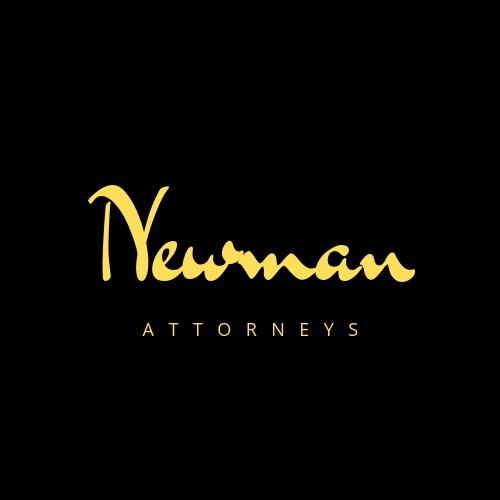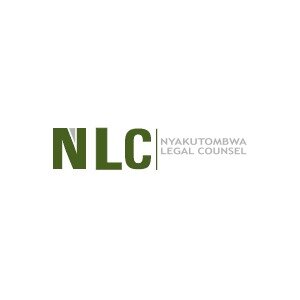Best Energy Regulatory Law Lawyers in Zimbabwe
Share your needs with us, get contacted by law firms.
Free. Takes 2 min.
Or refine your search by selecting a city:
List of the best lawyers in Zimbabwe
About Energy Regulatory Law in Zimbabwe
Energy Regulatory Law in Zimbabwe refers to the system of rules, regulations, and policies that govern the generation, transmission, distribution, and use of energy in the country. This includes laws related to electricity, fuel, petroleum, gas, and renewable energy. The main aim of Energy Regulatory Law is to create a safe, reliable, and sustainable energy sector while balancing the interests of consumers, investors, and the government. The Zimbabwe Energy Regulatory Authority (ZERA) is the primary body responsible for overseeing and enforcing these laws.
Why You May Need a Lawyer
Navigating the field of Energy Regulatory Law in Zimbabwe can be complex due to changing regulations and the involvement of various stakeholders. Common situations where legal help may be needed include:
- Applying for licenses to generate, transmit, or distribute energy
- Drafting and reviewing energy supply and power purchase agreements
- Handling disputes between consumers, service providers, and regulatory bodies
- Dealing with issues of land acquisition for energy projects
- Ensuring compliance with environmental and safety standards
- Negotiating tariffs and other regulatory charges
- Seeking recourse for unfair treatment or regulatory decisions
- Advising on investment in renewable energy projects
- Representing clients in hearings before the Zimbabwe Energy Regulatory Authority
Legal expertise ensures that you understand your rights and obligations, helps you avoid costly mistakes, and can protect your interests in the rapidly evolving energy sector in Zimbabwe.
Local Laws Overview
The main legal framework governing energy regulation in Zimbabwe includes the Energy Regulatory Authority Act, the Electricity Act, and specific regulations for different forms of energy such as petroleum, gas, and renewables. Some key aspects are:
- Licensing: All entities that want to generate, transmit, or distribute energy must obtain licenses from ZERA. This includes renewable energy providers.
- Tariff Approval: ZERA regulates electricity and fuel pricing to protect consumers from unfair pricing while ensuring sector viability.
- Quality and Safety Standards: There are minimum standards that must be met for the generation and supply of energy to ensure safety and efficiency.
- Environmental Compliance: Energy projects must comply with environmental impact assessments and sustainable practices set by the Environmental Management Agency (EMA).
- Consumer Rights: Consumers have the right to safe, reliable energy services and recourse mechanisms are available for resolving disputes.
- Promotion of Renewable Energy: Policies and regulations encourage investment in solar, hydro, and other renewable energy sources.
These laws provide the basis for regulation, dispute resolution, and the overall management of the energy sector in Zimbabwe.
Frequently Asked Questions
What is the role of the Zimbabwe Energy Regulatory Authority (ZERA)?
ZERA is responsible for licensing, monitoring, and regulating energy activities in Zimbabwe, including electricity, fuel, petroleum, gas, and renewables. They also approve tariffs and ensure compliance with standards.
Who needs a license from ZERA?
Any individual or entity that wishes to generate, transmit, distribute, import, or export energy in Zimbabwe must apply for a license from ZERA. This applies to both large companies and small-scale operators.
How are energy tariffs set in Zimbabwe?
Energy tariffs, including electricity and fuel prices, are set and approved by ZERA based on proposals submitted by service providers. The authority aims to balance the interests of consumers and suppliers.
What are the requirements for setting up a solar power project?
You need to obtain a license from ZERA, perform an environmental impact assessment, and comply with technical and safety standards. You may also need land rights and local authority approvals.
Can consumers challenge energy service providers over unfair practices?
Yes, consumers can lodge complaints with ZERA or take legal action if they experience poor service, unfair billing, or safety hazards. There are established mechanisms for dispute resolution.
What penalties exist for non-compliance with energy regulations?
Penalties include fines, suspension or revocation of licenses, and in some cases criminal charges, depending on the severity of the violation.
How does the government promote renewable energy?
The government offers incentives such as reduced licensing fees and support for investments in solar, hydro, wind, and bioenergy projects as part of its commitment to diversify energy sources.
What is involved in an energy project’s environmental compliance?
Projects must undergo an environmental impact assessment conducted by the Environmental Management Agency. Compliance with environmental and safety standards is mandatory throughout the project’s lifecycle.
Can foreign investors participate in Zimbabwe’s energy sector?
Yes, foreign investors are allowed but must comply with local laws, obtain the necessary licenses, and may need to partner with local entities depending on the project type.
What legal remedies are available for energy sector disputes?
Options include negotiation, mediation, arbitration, and litigation. ZERA also facilitates hearings and can issue binding decisions, but courts are available for unresolved or complex disputes.
Additional Resources
Several governmental and non-governmental organizations provide resources and support for Energy Regulatory Law in Zimbabwe, including:
- Zimbabwe Energy Regulatory Authority (ZERA)
- Ministry of Energy and Power Development
- Environmental Management Agency (EMA)
- Zimbabwe Electricity Transmission and Distribution Company (ZETDC)
- Zimbabwe Power Company (ZPC)
- Chamber of Mines of Zimbabwe (for energy-use in mining activities)
- Local professional associations such as the Law Society of Zimbabwe
- Renewable Energy Association of Zimbabwe
These organizations can provide information, regulatory guidance, and support services related to energy projects and compliance.
Next Steps
If you require legal assistance in the field of Energy Regulatory Law in Zimbabwe, follow these steps:
- Identify the specific issue or need, such as licensing, compliance, or dispute resolution
- Gather all relevant documents and information, including correspondence with regulatory bodies and project documentation
- Consult with a legal professional who specializes in Energy Regulatory Law to assess your options
- Contact the Zimbabwe Energy Regulatory Authority or relevant government body if clarification or official guidance is needed
- Review and follow legal advice to ensure compliance and protect your interests
Engaging early with a qualified lawyer helps prevent legal complications, facilitates project approval, and provides peace of mind as you navigate Zimbabwe’s energy sector.
Lawzana helps you find the best lawyers and law firms in Zimbabwe through a curated and pre-screened list of qualified legal professionals. Our platform offers rankings and detailed profiles of attorneys and law firms, allowing you to compare based on practice areas, including Energy Regulatory Law, experience, and client feedback.
Each profile includes a description of the firm's areas of practice, client reviews, team members and partners, year of establishment, spoken languages, office locations, contact information, social media presence, and any published articles or resources. Most firms on our platform speak English and are experienced in both local and international legal matters.
Get a quote from top-rated law firms in Zimbabwe — quickly, securely, and without unnecessary hassle.
Disclaimer:
The information provided on this page is for general informational purposes only and does not constitute legal advice. While we strive to ensure the accuracy and relevance of the content, legal information may change over time, and interpretations of the law can vary. You should always consult with a qualified legal professional for advice specific to your situation.
We disclaim all liability for actions taken or not taken based on the content of this page. If you believe any information is incorrect or outdated, please contact us, and we will review and update it where appropriate.
Browse energy regulatory law law firms by city in Zimbabwe
Refine your search by selecting a city.







